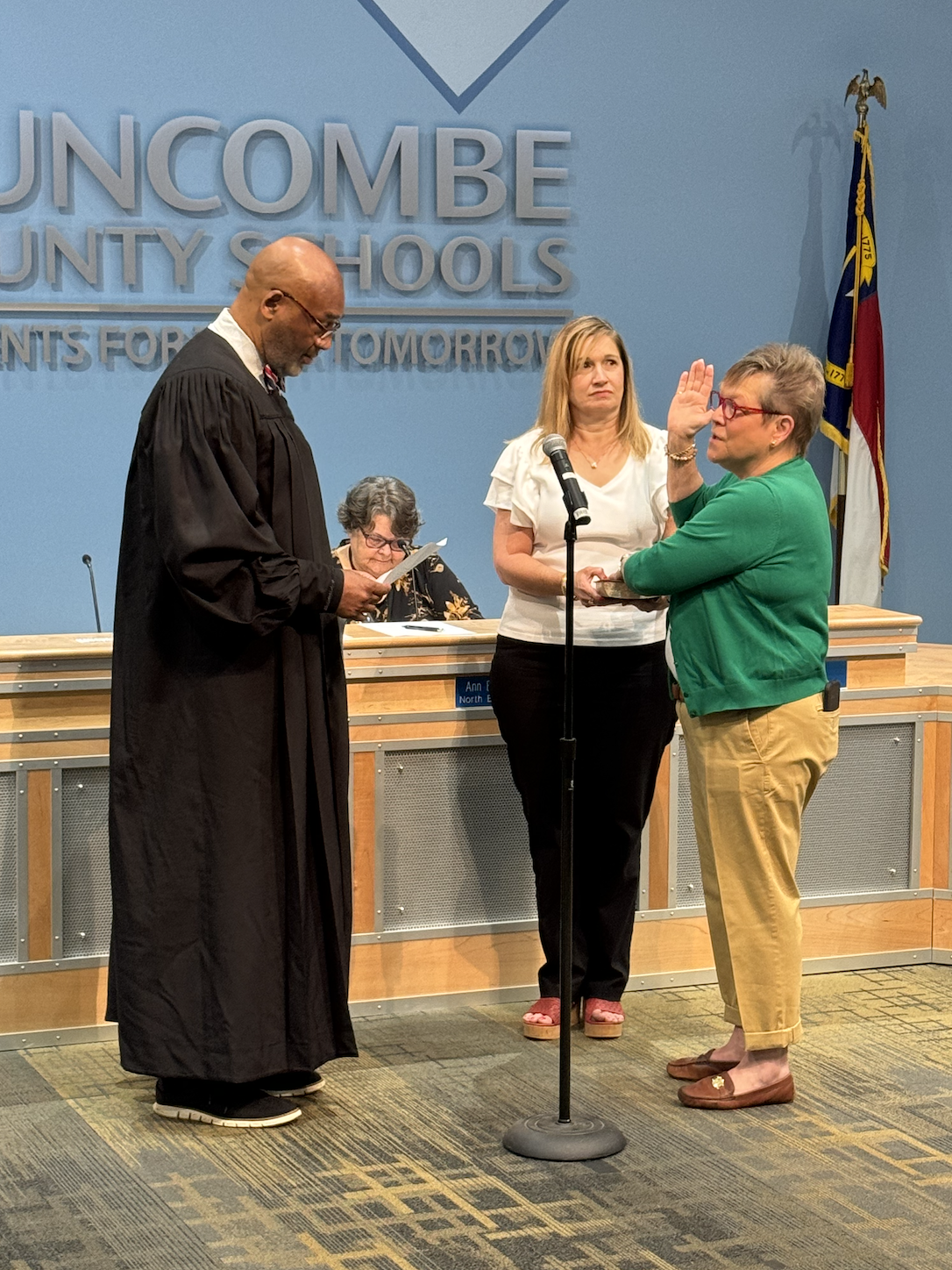The Buncombe County Board of Education is not happy with the direction state legislators are taking in funding schools.
The school board passed a resolution 7-0 in a special meeting June 27 calling on the N.C. General Assembly to increase teacher salaries, allocate funding for early childhood education and put a moratorium on the state’s private school voucher program.
“The diversion of public funds to private schools through taxpayer-funded vouchers poses a significant financial threat to public schools, potentially depriving them of essential resources and compromising the quality of education for all students,” said Superintendent Rob Jackson, reading from the resolution.
The move comes as the future of two bills introduced this spring in the N.C. House and Senate to expand the state’s voucher program remain in limbo, as the two chambers work through differences related to the fiscal year 2025 budget.
The proposed expansion of the opportunity scholarship program aims to clear a waitlist of 55,000 qualified applicants, after a law passed last fall removed income caps from the program.
The 2023 law eliminated a requirement that vouchers be accessible only to households that fall below certain income levels, as long as at least 50% of total annual funds go to children whose families qualify for free and reduced-price school meals. The law also increased spending on the program from $133.8 million to $400 million in FY 2025.
More than 32,500 students received vouchers this school year, 817 of which were from Buncombe County, according to the N.C. State Education Assistance Authority, which administers the program.
Because the state funds schools based on attendance, public districts lose funding when students migrate to private schools, Board member Rob Elliot stated at the June 27 meeting.
The current money used for vouchers, he added, could instead be invested into public education.
The Office of State Budget and Management estimates that Buncombe County’s two public school districts could be out a combined $5.6 million in fiscal year 2027. This projected loss predates proposals to further expand the program.
Finances are just part of the problem, Jackson said.
“There’s a loss, in my mind, of transparency for parents and for taxpayers to understand how those dollars are being spent and what the return on investment is. And so I think that both of those things are true, that there’s a loss of funding to public schools, there’s also a loss of transparency to taxpayers in terms of how their dollars are being spent on education,” Jackson added.
At the same meeting, the board passed a six-month interim budget to ensure district employees and functions are paid for through November while the district waits to see what its final allocation will be when the state budget passes.
Even though the district only received $3.4 million of its $13.5 million request from the Buncombe County Board of Commissioners in its budget passed June 18, school board members said the county is doing as much as they can for its two school districts, and the onus for the funding gaps lies with the state.
“I’m not happy with what we have right now at the state level. And I just hope people will remember that this fall, because it’s definitely hurting public education,” said Board member Kim Plemmons.




The objective, Buncombe, is to educate children, not to play politics with favorites. Maybe go take some education courses in out-of-state colleges to understand what education involves. It’s about children not politics.
Your objection is noted
Hmm, there certainly are lots of parental taxpayers who support the voucher program and they vote.
If government schools were performing well, vouchers would be unnecessary.
It will be very interesting to see how the newest Board of Education member (Glenda Weinert) feels about school vouchers. She is very active in the Republican Party which supports the private school vouchers. She also sent her own children to private, Christian schools instead of Buncombe County Schools. What is the agenda Glenda?